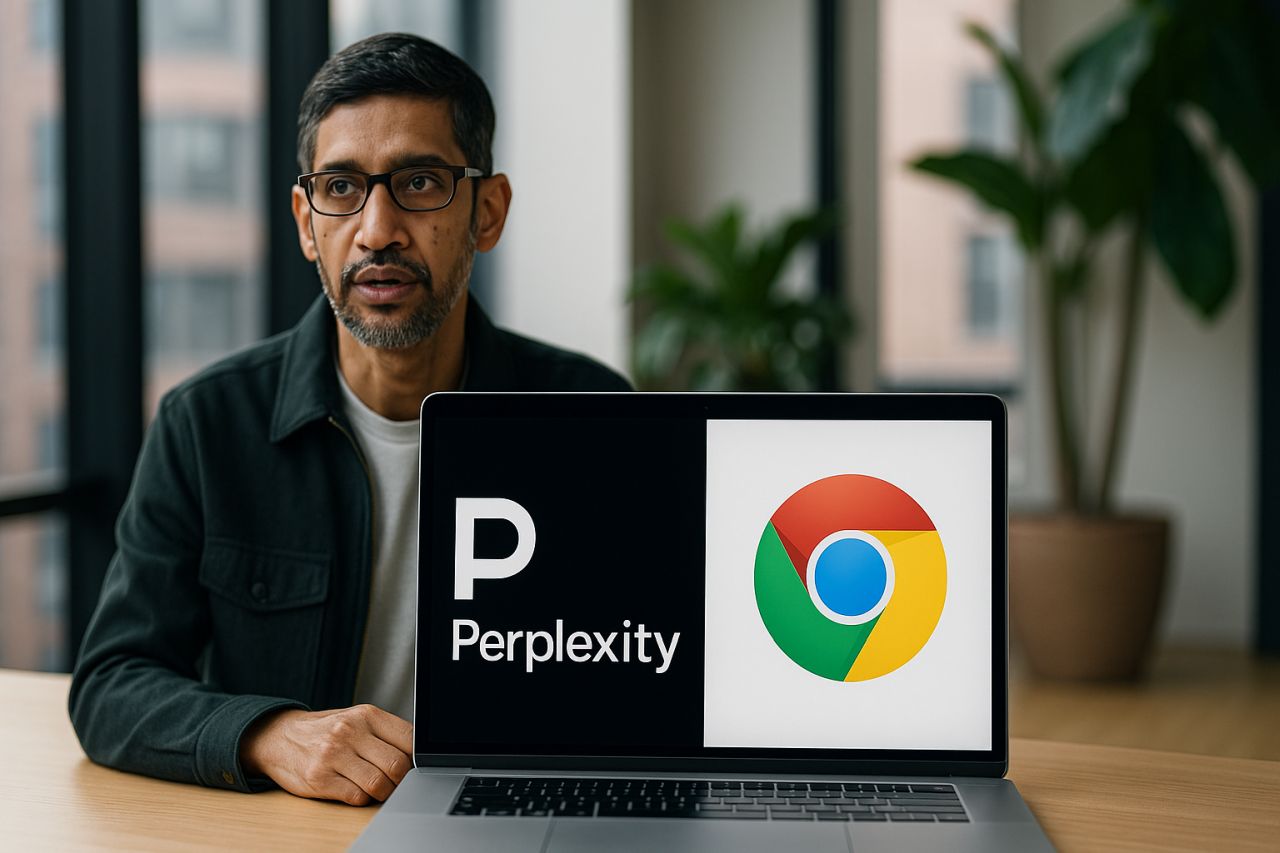Artificial intelligence startup Perplexity AI has shaken the tech world with an unsolicited $34.5 billion offer to acquire the Chrome browser from Google. The move comes at a critical time for the Mountain View giant, which is facing the consequences of a landmark antitrust ruling that could force it to divest its dominant browser.
Perplexity, one of the most dynamic startups in the AI field and already known for its involvement in the complex TikTok affair in the United States, has launched a new challenge. According to reports, the company has put forward a figure that, while substantial, is considered by several analysts to be significantly below Chrome’s actual value. Estimates based on Google’s agreements with Apple to be the default search engine on Safari suggest that Chrome’s value could be between $170 billion and $600 billion, far exceeding the $50 billion speculated by the CEO of DuckDuckGo or the more cautious estimates from some Bloomberg analysts.
A strategic move in the antitrust context
Perplexity’s move is not random; it strikes at the heart of the legal battle in which Google is accused of being a monopoly. Last year, Federal Judge Amit P. Mehta ruled that Google acted illegally to maintain its dominance in the online search market. The same judge is soon expected to decide on the corrective measures needed to restore competition, and a forced divestiture of Chrome is one of the options on the table, strongly advocated for by the U.S. Department of Justice.
By presenting a concrete offer, Perplexity—backed by major venture capital funds and investors—not only positions itself as a potential buyer but also sends a strong signal to the court: a viable market alternative exists. This could influence Judge Mehta’s decision, potentially pushing him to opt for a structural remedy like the sale of the browser, which has over three billion users globally. For a startup like Perplexity, which aims to redefine search through artificial intelligence, acquiring Chrome would represent an unprecedented opportunity to integrate its technology and reach a vast user base.
The political context and pressure on Big Tech
This situation unfolds amidst a climate of growing political pressure on the tech sector in the United States, marked by the Trump administration’s pronounced interventionism. Recently, the President negotiated direct deals with semiconductor giants: Nvidia and AMD have committed to paying the U.S. government 15% of their revenue from chip sales to China.
Furthermore, Trump himself publicly called for the resignation of Intel’s CEO, Lip-Bu Tan, over alleged ties to China, only to retract the demand and meet with the CEO a few days later, demonstrating a direct and often unpredictable approach in relations with Silicon Valley’s top executives. This scenario of strong political oversight could further complicate Google’s position, making a court decision in favor of a Chrome sale an increasingly plausible hypothesis.






